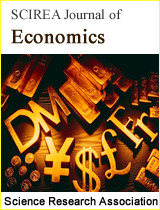Socio-economics variables and solid waste generation and management in Port Harcourt Metropolis
DOI: 317 Downloads 18275 Views
Author(s)
Abstract
Some select socio–economic variables of solid waste generation and management were investigated in the entire 20 wards of Port Harcourt Metropolis, Rivers State, Nigeria. This was done in order to gauge the effects of socio-economic factors such as income, size of the family, employment status, educational qualification, packaging and disposal techniques on waste generation and management and to produce adequate information for waste planners. The 20 wards of Port Harcourt were grouped into three zones representative of building patterns, population density and preconceived social classifications. The zones are low (low density population), medium (medium density population) and high zone (highly populated areas). Questionnaires were distributed to 133 respondents in each of the classified zones; a total 399 questionnaires were distributed. Data were analysed using Analyses of Variance (ANOVA) and correlation analyses with the aid of SPSS software. Results showed that there were significant differences (p=0.05) between zones in parameters such as income, educational qualification, family size and employment status; the low zone had higher incomes, employment levels, educational status but lower family sizes than the middle and high zones. Also Income was positively correlated with amount of waste generated (p=0.05. r=0.113), educational qualification was positively correlated with waste generated (p=0.05, r= 0.342) income was negatively correlated with size of family (p=0.01, r=0.327). The result also indicated that people in the high zone having low incomes are likely to deposit anywhere and anyhow. This study therefore accepts that solid waste generation and management is a function of income, educational attainment and household size. Based on the findings from this research, it can be concluded that the problem of waste generation and management is simply tied to the socio-economics of the populace in Port Harcourt. Therefore the management of waste lies in addressing socio-economic issues and inequalities.
Keywords
economics, solid waste, generation, management, Port Harcourt
Cite this paper
OMEKWE, P.P,
Socio-economics variables and solid waste generation and management in Port Harcourt Metropolis
, SCIREA Journal of Economics.
Volume 2, Issue 2, April 2017 | PP. 1-15.
References
| [ 1 ] | Afroz, R., Hanaki, K., Tuddin, R. (2010) An assessment of socio-economic factors affecting solid waste generation and composition in China, Research Journal of Applied Sciences, 5(3) 183 – 190. |
| [ 2 ] | Akubo, T. (2000) Niger Delta in Briefs; A document of the Niger Delta Development Project: A paper presented at the 4th Annual Lecture Series of the Ijaw Renaissance Forum. 24th-26th June, 2000. |
| [ 3 ] | Beede, D. N. and Bloom, D. E. (1995), "The Economics of Municipal Waste" The World Bank research Observer , 10( 2): 113-150. |
| [ 4 ] | Hong, S and Adams, R.M (1999) Household Responses to Price Incentives for Recycling: Some Further Evidence‖, Land Economics 75 (Nov) 505-14. |
| [ 5 ] | Kinnaman, T.C. and Fullerton, D. (1999) The Economics of Residential Solid Waste Management, National Science Foundation (NSTERS) Research Paper in Economics, Working Paper 7326 http://www.nber.org/papers/w7326. |
| [ 6 ] | Naluba N.G. (2011) Relationship Between Local Government Headquarters And Rural Hinterland Settlements In Rivers South East Senatorial District Of Rivers State, Nigeria. Journal of Agriculture and Social Research (JASR). 11(2) 23-27. |
| [ 7 ] | Omoh, J. (1998) Economic recession and the proliferation of the Christian church in Nigeria. B.Sc project, Department of Sociology, University of Port Harcourt. 56pp. |
| [ 8 ] | Pfeffer, J.T. (1992). Solid Waste Management Engineering. Sources and Characteristics of Urban Solid Wastes. pp 47-70. New Jersey: Prentice Hall. 307p. ISBN 0-13-824905-9. |
| [ 9 ] | Raman, N and Narayanan, S.D (2008) Impact of Solid Waste on Ground Water and Soil Quality nearer to Pallavaram Solid Waste Landfill in Chennai‖, Rasayan Journal of Chemistry, Vol No.4 |
| [ 10 ] | Sankoh, F.P., Yan, X., Conteh, M.H. (2012) A situational assessment of socio-economic factors affecting solid waste generation and composition in Freetown, Sierra Leone. |
| [ 11 ] | Shasha, W. (1993). Community Health Workers in Ngangelizwe, Umtata: Report of Feasibility Study. Umtata: Unitra Community Partnership Project. 19p. |
| [ 12 ] | SPSS 16.0 (Computer Program), SPSS Inc., Chicago, 2005. |
| [ 13 ] | United Nations Educational, Scientific and Cultural Organization (UNESCO), (1996). Management of Solid Wastes: Multimedia Post Graduate Course in Environmental Engineering. France: UNESCO. p338. |
| [ 14 ] | Viljoen, V.D and Van Staden, G. (1987). Environmental Psychology: An Introduction. Johannesburg: Lexicon Publishers. ISBN 1 86813 024 X. 292p. |

